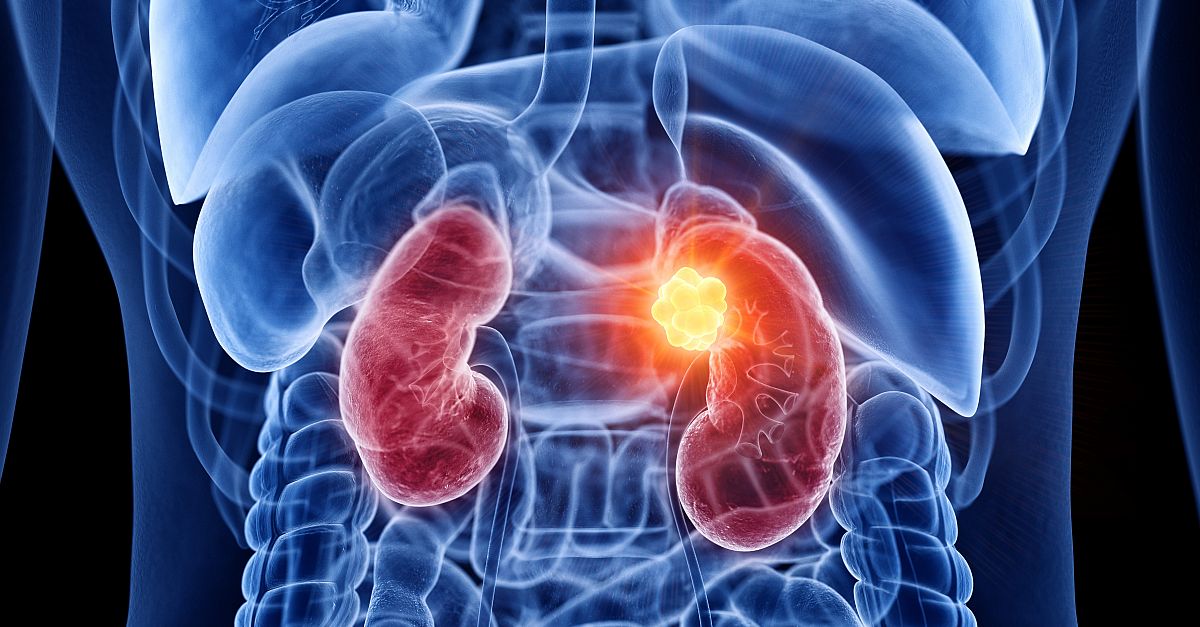Renal cell carcinoma (RCC) is most common in Europe, Oceania, and North America, and is the 15th most common cause of cancer-related death worldwide. Treatment of patients with metastatic RCC has evolved with new therapy options, including immune checkpoint and tyrosine kinase inhibitors. A review published in JAMA summarized recent research in RCC’s epidemiology, clinical presentation, pathophysiology, and management.
RCC is often diagnosed incidentally in an abdominal imaging study; fewer than 10% of patients with newly diagnosed RCC experience the classic symptom triad of flank pain, a palpable abdominal mass, and hematuria. Only large RCCs are detected by palpation. There are more than 20 histologic subtypes of malignant RCC, the most dominant of which is clear cell, which accounts for 75% to 80% of cases. Most cases (70%) are diagnosed as stage I RCC, and 11% are stage IV. In patients with metastatic disease, the most common sites of metastasis are lung (70%), lymph node (45%), bone (32%), liver (18%), adrenal gland (10%), and brain (8%).
Treatment of localized RCC typically consists of surgery with partial or radical nephrectomy. Partial nephrectomy is preferred for most patients, but patients whose tumors have extended to the inferior vena cava may require radical nephrectomy. Following nephrectomy, systemic therapy (eg, pembrolizumab) is used as adjuvant therapy for patients with intermediate- and high-risk localized clear cell RCC. For patients with small renal masses (≤4 cm) who have substantial comorbidities and limited life expectancy, active surveillance may be recommended.
Cytotoxic chemotherapy is generally not effective for the treatment of metastatic RCC, so systemic therapy includes immunotherapy and targeted therapy. Compared with survival prior to use of immune checkpoint therapies, survival rates are markedly improved with modern systemic combination therapies including dual immune checkpoint inhibitors (eg, ipilimumab and nivolumab) or an immune checkpoint inhibitor combined with a tyrosine kinase inhibitor. However, longer-term population-level survival rates with these treatments have not yet been determined. Patients with RCC treated with systemic therapy benefit from a multidisciplinary approach with a team that can help manage potential immune-related adverse events.
High level
Research is still needed to understand longer-term outcomes with immune checkpoint therapies in patients with metastatic RCC, including population-level survival rates. Additionally, prospective validation is needed to enable the use of predictive biomarkers for RCC.
Ground level
RCC characteristically appears on computed tomography (CT) scans as a solid or cystic mass. The American College of Radiology guidelines for workup of an incidental renal mass recommend multiphase cross-sectional CT imaging or magnetic resonance imaging (MRI) using contrast. MRI has improved the ability to detect venous involvement, which can aid surgical planning.
Clinically useful biomarkers predictive of treatment response to RCC therapy have not yet been identified, but clear cell RCC has been shown to be one of the more immunotherapy-responsive cancers. When making treatment recommendations for patients with metastatic RCC, clinicians are advised to consider disease-related symptoms, comorbidities, and patient risk tolerance given the higher rate of adverse events in combination regimens.

